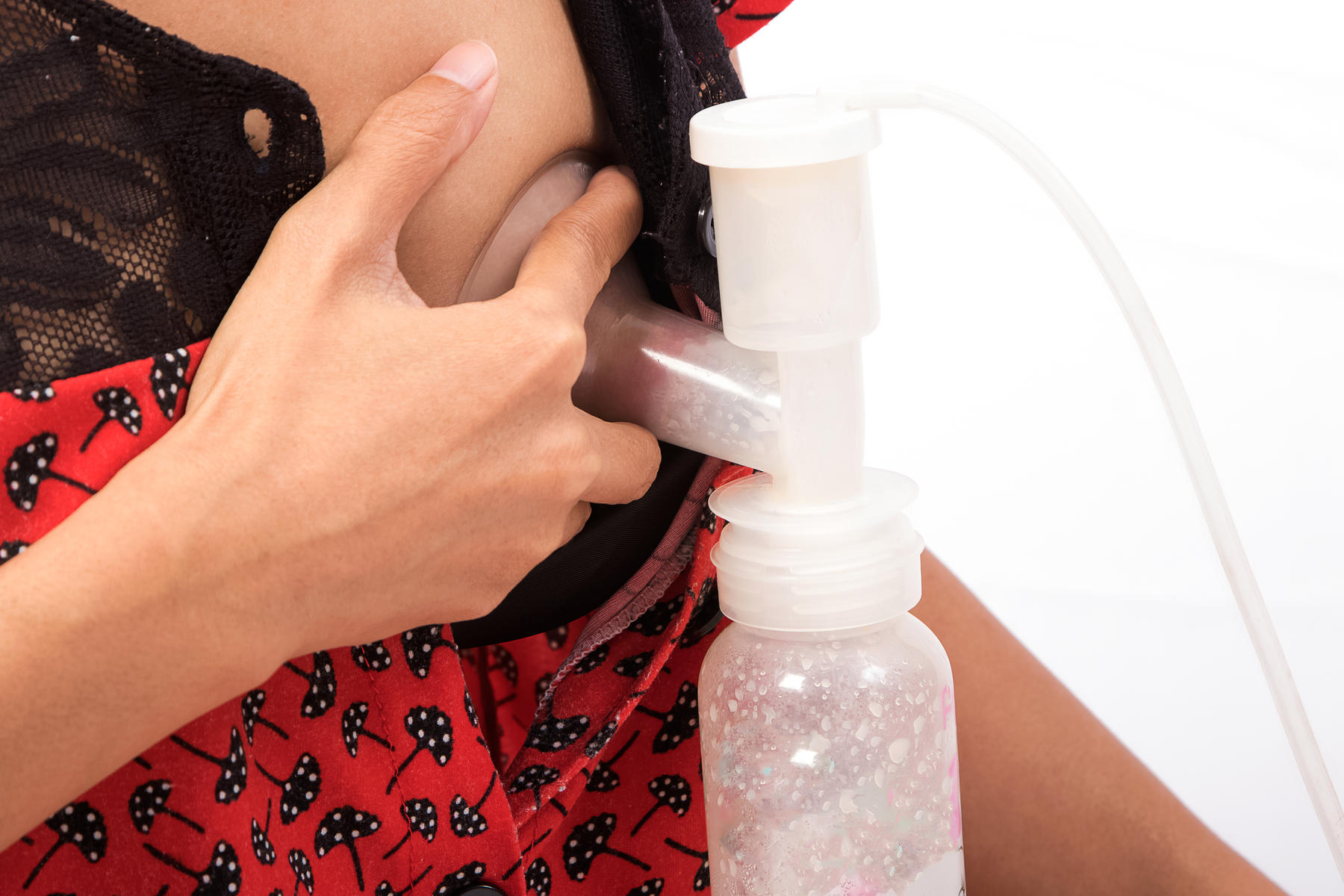
Breastfeeding moms know that having a quality breast pump is key to nursing success. Those who wrote the Affordable Care Act knew this, because after the law went into effect in 2012, health insurance companies were required provide at least one breast pump for free or with a co-pay. The upshot was found to be overwhelmingly positive, as a study published online in the American Journal of Health concluded that "reducing barriers to receiving support services and breastfeeding equipment shows promise as part of a broader effort to encourage breastfeeding, particularly the duration of breastfeeding and the amount of time before formula supplementation." Unfortunately, as of April 1, one major insurer has implemented a change that could impede that progress.
What Anthem\’s changes look like for insured moms
Anthem Blue Cross Blue Shield covers over 40 million people across 15 states: California, Colorado, Connecticut, Georgia, Illinois, Indiana, Kentucky, Maine, Missouri, New Hampshire, Nevada, New York, Ohio, Virginia, and Wisconsin. Last month, they cut their reimbursement for breast pumps nearly in half, and customers weren't directly notified of the change. Anthem used to pay medical equipment providers $169.15, but now, they’ll only reimburse $95. This doesn't match up with what pumps cost off the shelf. In fact, a good pump costs roughly $150-$200, so the lower reimbursement means parents who were relying on more of that bill being covered by Anthem could be stuck paying roughly $100 out of pocket.
The Virginian-Pilot reported that Anthem spokesman Scott Golden said in an email the decision "will not impact the ability of any new mother to access a high-quality, standard double electric breast pump from our nationally contracted medical suppliers." Company officials declined to be interviewed.
Meanwhile, info on Anthem's site that was last updated on April 9 explains that customers' coverage is based on their individual plans, but "most individual and employer-based plans cover the cost of high-quality breast pumps," and moms are "able to choose from popular brands like Ameda Finesse, Evenflo Advanced, Lansinoh Signature Pro, Spectra S2 Plus and Medela Pump in Style."
In other words, depending on coverage, many women who have Anthem insurance will still be able to get certain pump models for free. But if they wanted to purchase one themselves and submit for reimbursement, they'll be getting less back than they would prior to April 1.
The case for a quality breast pump
Billie Larson Shipley, a mom of one from Los Angeles, California, is covered under Anthem. Under her plan, she was able to choose a Medela pump that was covered 100%, but ultimately, she bought herself a different model off the shelf for $100. "Medela is great, but it doesn't work at well as my other models," she explains. "It's just not that strong, and it takes longer."
Shipley's situation illustrates just how important it is to have access to a quality pump if you want to breastfeed successfully. John Thoppil, MD, OB/GYN, of River Place OBGYN in Austin, Texas tells Parents.com, "I wish every woman had access to both a quality pump and a lactation consultant. A quality pump that is efficient helps decrease the time expended by busy moms."
Emma McCabe, a Certified Breastfeeding Counselor (CBC) in Brooklyn, New York, who also happens to be covered by Anthem tells Parents.com that breastfeeding is already difficult for families due to the "lack of access to affordable care and support," which includes "appalling maternal leave policies in America." She elaborates, "Access to affordable breast pumps is so vital to American women. Women who choose to breastfeed need to pump milk throughout the day at work to be able to maintain their supply and feed their baby. The group of women most likely to breastfeed are white, college-educated women in their 30s, which also positively correlates to a higher income bracket. By raising the cost of breast pumps, Anthem is making this a class/race issue and pricing women out of being able to afford to breastfeed their baby."
What this change means in the long-run
McCabe also feels the company's decision to cut back on reimbursement is a short-sighted one financially. "Breastfeeding saves insurance companies money down the line," McCabe notes. "In fact, if we met the 90% of Healthy People 2020 goals for breastfeeding, we would save $13 billion dollars in public health care."
Dr. Thoppil agrees that this short-term money-saving move is damaging for L.O.'s wellness—and health care costs—in the long-run. "Health care is expensive, and they are trying to bend the curve," he shares with Parents.com. "Unfortunately, this is short-sighted. Breastfed kids are sick less often. Anything that decreases the rate of breastfeeding may actually increase health care cost by increasing sick visits."
How moms can fight back
Certan advocacy groups have been up-to-speed on the issue for weeks now. One in particular, Moms Rising, is encouraging people to reach out to Anthem to express their concerns.
McCabe agrees that those who are affected or simply concerned by this move would do well to speak up. "Petition Anthem to change their policy," she advises. "Continue to raise awareness about the importance of breastfeeding and providing equal opportunity to women of all socio-economic backgrounds and races. Provide affordable support and education about breastfeeding."

